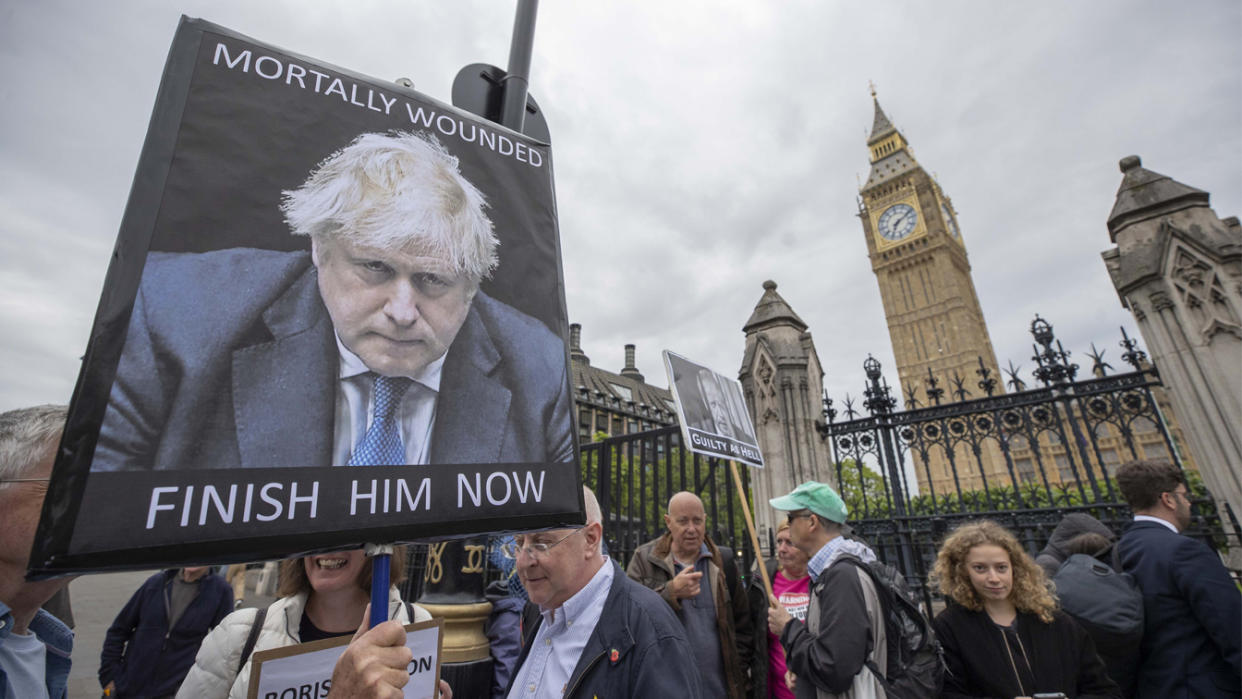Boris Johnson survives no-confidence vote, but his political future remains tenuous
LONDON — U.K. Prime Minister Boris Johnson survived a vote of no-confidence in the British Parliament Monday evening, but the rebellion by members of his own party has significantly weakened his standing.
Johnson’s popularity has plunged over the past year following revelations that he and his aides threw parties at 10 Downing St. despite government regulations put in place to stem the spread of COVID-19 that forbade such gatherings. With the pandemic dragging on, Johnson’s attempts to downplay the parties have darkened the political prospects for those in his party.
In Monday’s vote, Johnson won 58.8% support from Conservative Party lawmakers, while 41.2% voted for his ouster. In historical terms, that tally does not bode well for Johnson. In 2018, then-Prime Minister Theresa May received 63% support in another no-confidence vote, but was forced to resign just six months later.

Under Conservative Party rules, lawmakers will not be allowed to hold another no-confidence vote for at least 12 months, but Johnson’s position could well become untenable before then. Opposition leader Sir Keir Starmer said the result of Monday’s vote showed that Johnson’s party was clearly “divided” and that his fellow lawmakers were “propping up” the prime minister following his vote of confidence.
"The choice is clearer than ever before: Divided Tories propping up Boris Johnson with no plan to tackle the issues you are facing," Starmer tweeted on Monday. "Or a united Labour Party with a plan to fix the cost-of-living crisis and restore trust in politics. Labour will get Britain back on track."
Johnson said the result was “decisive” and that he was “grateful” to his colleagues for the support they gave him. "What we need to do now is come together as a government and a party," he added.
